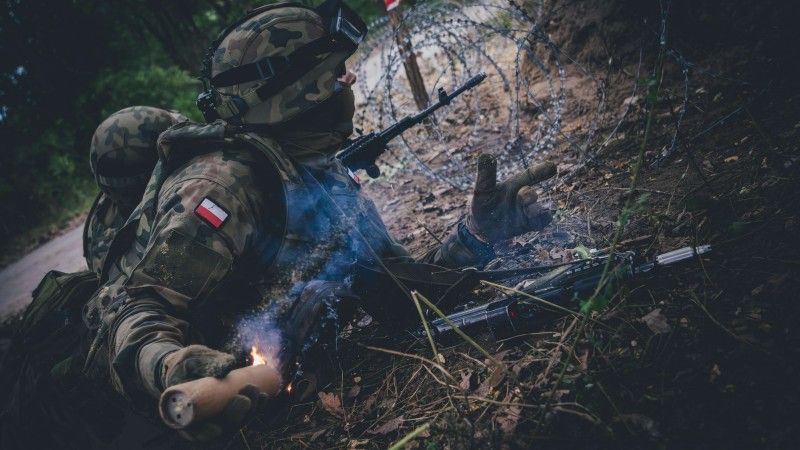Great Seven. Priorities of the Polish Armed Forces for Next 15 Years

Photo. Sztab Generalny WP (@SztabGenWP)/X
General Wiesław Kukuła, Chief of the General Staff of the Polish Armed Forces, announced the development priorities of the Polish Armed Forces for the years 2025-2039. The key modernisation directions of the armed forces, called the »big seven«, include modern technologies and organisational changes that are intended to ensure Poland’s ability to defend itself effectively and deter potential adversaries.
The Big Seven:
- Intelligent mass – combining quantity with quality
- Multi-domain operations – war in physical, information and cognitive space
- Air Dominance and Precision Strike – the key to deterrence through punishment
- Aircraft, Missile, Counter-drone defence – protection of troops and infrastructure
- Next-generation personnel reserves – training system adapted to demographic challenges
- Dronisation and robotisation – efficiency, reduction of costs and personal losses
- Artificial intelligence – acceleration of data analysis and real-time decisions
The Chief of the General Staff of the Polish Army, General Wiesław Kukuła, emphasises that the traditional paradigm of qualitative advantage must be replaced by a combination of quantity and quality. »Quality cannot replace quantity. The combination of quantity and quality will replace the previous paradigm of the primacy of quality over quantity,« the general points out.
The modern battlefield includes not only traditional domains, but also outer space, cyberspace and the cognitive sphere. »The future war will be fought in the physical, information and cognitive dimensions,« adds General Kukuła. That is why the Polish armed forces are focusing on multi-domain operations, enabling an effective response to new threats.
New deterrence capabilities
General Kukuła points out that Poland must develop the ability to break through the enemy’s anti-access systems. To this end, a »deep, precise strike« is necessary to weaken the enemy’s potential and strategic systems. This approach is in line with the concept of deterrence through punishment.
Air defence, anti-missile defence and anti-drone defence are another modernisation priority. They are intended to protect troops, critical infrastructure and the civilian population. As Kukuła emphasises, this is a key element of »deterrence through punishment«.
One of the challenges for the Polish Army is the upcoming demographic decline. In response to this problem, the implementation of a new reserve training system is planned, which will allow for the effective replenishment of the armed forces. »The new system of training and maintaining combat readiness of the reserves will enable the fulfilment of a wide spectrum of military capabilities with personnel resources. It will build resources for long-term operations of the Armed Forces. It will limit the negative effects of the impending demographic decline on the Polish Army,« explains the Chief of the General Staff.
Drone and robotisation are another key area of modernisation. The use of modern technologies is intended to reduce costs, increase combat effectiveness and reduce personnel losses. »It will enable constant access to information about the tactical situation at the lowest levels of command,«
Artificial intelligence on the battlefield
The increase in the number of sensors and combat systems requires the processing of huge amounts of data in real time. General Kukuła emphasises that »the widespread implementation of AI will enable the acceleration and desired efficiency of these processes«. Artificial intelligence is intended to improve analysis and decision-making, which will translate into increased effectiveness of military operations.
The new priorities of the Polish Armed Forces are undoubtedly a step towards a modern army adapted to contemporary threats. However, their implementation will require huge financial outlays and a well-thought-out implementation strategy. It will also be crucial to properly prepare personnel to use new technologies and optimise command systems.
International cooperation, which remains an important element of the Polish defence strategy, should not be forgotten either. Joint exercises with NATO allies and the development of interoperability with other armies will be crucial for the effective implementation of new capabilities.

WIDEO: Defence24 Days 2025: Premier Defence & Security Conference in CEE